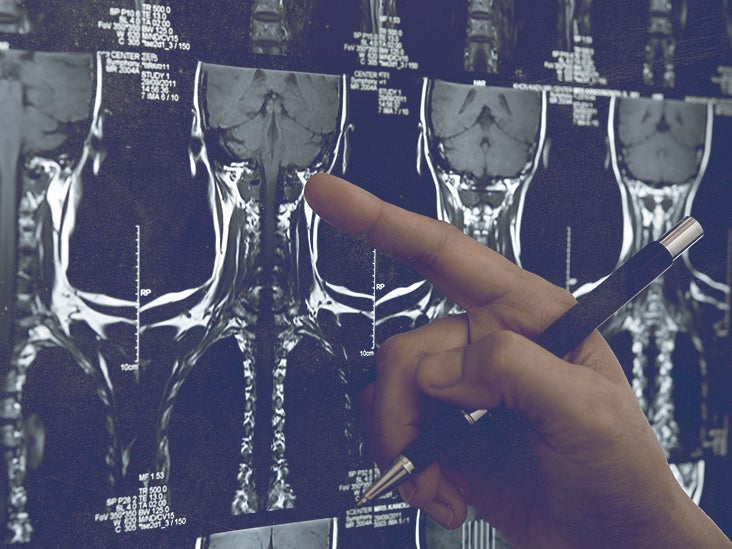Meningitis vs. encephalitis: Links, differences, and more - Medical News Today

Meningitis and encephalitis are two conditions that affect the central nervous system (CNS).
Meningitis causes swelling in the membranes that surround the brain and spinal cord, while encephalitis causes brain inflammation.
Bacteria, viruses, fungus, and parasites can all cause meningitis and encephalitis. Both conditions also share similar symptoms, such as a headache, stiff neck, and sensitivity to light.
Keep reading to learn more about the similarities and differences between the causes, symptoms, and treatment options for meningitis and encephalitis.
Meningitis is an infection of the meninges. The meninges are a protective covering, or membrane, that coats the brain and spinal cord.
The different types of meningitis relate to the cause of the infection.
Viral meningitis
Viruses that cause meningitis are usually enteroviruses that enter through the mouth and travel to the brain, where they multiply and infect nearby tissue. Saliva, mucus, and feces can contain enteroviruses.
Transmission occurs through direct contact with these viruses through fluids or surfaces.
Other viruses that can cause meningitis include:
- varicella-zoster virus, which causes chickenpox
- influenza
- mumps
- HIV
- herpes simplex 2
Bacterial meningitis
Bacterial meningitis is a rare but potentially life threatening infection. The most common types of bacteria that cause meningitis include:
- Streptococcus pneumoniae:This bacterium causes pneumococcal meningitis, and it is the most common and life threatening type of bacterial infection.
- Neisseria meningitidis: This bacterium causes meningococcal meningitis. It is a highly contagious infection, and 10–15% of cases are fatal.
- Haemophilus influenzae type b:This form of meningitis is now rare, as most children have received the H. influenzae type b vaccine.
Fungal meningitis
Cryptococcus neoformans causes cryptococcal meningitis. It is the most common type of fungal meningitis infection. People with compromised immune systems are more susceptible to this infection than others. After treatment, fungal meningitis may recur in up to 50% of people.
Parasitic meningitis
Cysticercosis, a type of tapeworm, can cause meningitis and also cerebral malaria.
Amoebic meningitis is another type of parasitic infection. A person can contract this while swimming in freshwater. Although this type of meningitis is extremely rare, it is often fatal.
Learn more about the types of meningitis here.
In most cases, a viral infection is the cause of encephalitis. Bacterial, fungal, and parasitic infections are rare.
Viruses that cause encephalitis include:
When a viral infection is the direct cause of encephalitis, a person has primary encephalitis.
However, when encephalitis presents after another infection occurred elsewhere in the body, such as mumps, a person has post-infectious encephalitis.
In some cases, a person may develop encephalitis from a tumor or an autoimmune problem. Doctors call this autoimmune encephalitis.
If a person presents with symptoms of either meningitis or encephalitis, they should receive medical treatment right away to prevent permanent damage to the brain and spinal cord.
Meningitis
Common symptoms of meningitis include:
- high fever
- severe and persistent headache
- stiffness in the neck
- sensitivity to bright light
- vomiting
- sleepiness
- confusion
- lethargy
Some forms of meningitis also present with rashes.
Encephalitis
Common symptoms of encephalitis include:
- sudden onset of fever
- headache
- vomiting
- light sensitivity
- stiffness in back and neck
- confusion
- tiredness
- weak muscles
- problems with hearing
- visual hallucinations
To diagnose meningitis or encephalitis, a doctor will first conduct a physical examination and review a person's medical history to rule out other conditions.
They will then order additional tests, which include:
- Neurological exams: These assess motor and sensory function, in addition to hearing, speech, coordination, and balance.
- Screening of bodily fluids: Blood and urine tests help a doctor identify the presence of infection and rule out metabolic conditions.
- Cerebrospinal fluid analysis: This analysis involves collecting a small sample of the fluid that surrounds the brain and spinal cord. It helps a doctor check for signs of inflammation and the presence of bacteria, blood, and viruses.
- CT scans: This type of brain imaging helps a doctor identify the location and extent of brain inflammation.
- MRI: A doctor uses this imaging technique to identify inflammation in the spinal cord and brain. It can also help detect brain tumors and areas of infection.
If a doctor suspects a virus is responsible for brain inflammation, they may recommend electroencephalography (EEG). An EEG can detect brainwave patterns that researchers have associated with different types of viral infections.
Receiving quick treatment for meningitis and encephalitis is of the utmost importance to prevent permanent damage to the CNS.
Meningitis
Treatment for meningitis can include:
- antibiotics that can cross the blood-brain barrier
- anticonvulsants
- corticosteroids, especially prednisone
- antifungal medications
Encephalitis
Treatment for encephalitis can include:
- antivirals, such as acyclovir and ganciclovir
- immunosuppressant drugs for autoimmune encephalitis
- anticonvulsants
- corticosteroids
If a person has long-term damage from encephalitis, they may undergo cognitive rehabilitation, physical therapy, or speech therapy.
Meningitis cannot cause encephalitis, and encephalitis cannot cause meningitis. However, it is possible to have both conditions at the same time.
When this happens, a person has meningoencephalitis, which means inflammation is present in both the meninges and the brain.
People with immunocompromised conditions are more
To prevent long-term damage to the CNS, doctors need to diagnose meningoencephalitis quickly and treat the symptoms with antiviral therapy and antibiotics.
Meningitis and encephalitis are two distinct conditions that affect the CNS. Meningitis causes inflammation in the meninges, while encephalitis causes brain inflammation.
A variety of pathogens can cause these conditions, including viruses, bacteria, fungi, and parasites.
The main symptoms of each condition are headache, sensitivity to light, neck stiffness, and fever.
Receiving treatment quickly is especially important. Severe inflammation within the CNS could permanently damage areas of the brain and spinal cord, potentially leaving a person with lifelong disabilities.

Comments
Post a Comment